MercoPress. South Atlantic News Agency
Tag: Finances
-
Thursday, January 17th 2019 - 09:08 UTC
China injects US$ 83bn to the financial system hoping to prop a declining economy
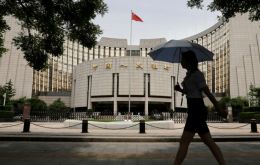
China’s central bank injected a record US$ 83 billion into the country’s financial system on Wednesday, seeking to avoid a cash crunch that would put further pressure on the weakening economy. China’s policymakers are pledging to step up stimulus measures this year and do more to protect jobs as economic growth cools to 28-year lows.
-
Saturday, January 12th 2019 - 10:34 UTC
Excessive high-risk premium for Argentine assets, claims Macri official

Investors have placed an excessively high-risk premium on Argentine assets compared to their peers, according to Finance Secretary Santiago Bausili, quoted in a report by Bloomberg. Argentina's country risk rating has been hovering at 7.0 percentage points.
-
Wednesday, January 9th 2019 - 14:49 UTC
Brazil's Bovespa closes above 92.000 points for the first time ever
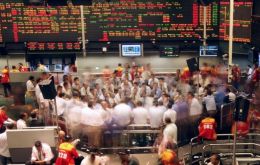
Latin American stocks in the region's main markets closed on Tuesday at new highs on the positive outlook for the ongoing US/China trade talks in Beijing. Brazil's Bovespa index ended trading above 92,000 points for the first time ever after hitting several record highs last week.
-
Tuesday, January 8th 2019 - 10:11 UTC
Financial sector leading firms plan to launch an equities exchange: “Members Exchange”
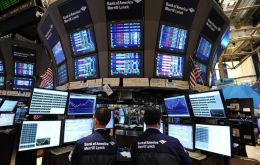
A group of nine leading retail broker-dealers, banks, financial services firms, and global market makers, have agreed to launch an equities exchange, MEMX, or Members Exchange. The new exchange will be owned entirely by its founding members and will seek to deliver benefits to retail and institutional investors by introducing greater competition to the marketplace. MEMX will file an application with the Securities and Exchange Commission in early 2019 for approval to operate as a national securities exchange.
-
Saturday, January 5th 2019 - 08:40 UTC
Fed brings relief to markets saying it would be “patient” about rate hikes
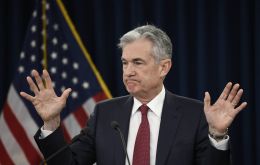
Federal Reserve Chair Jerome “Jay” Powell took steps to reassure financial markets on Friday, saying that the US central bank would be “patient” about rate rises. He also defended his independence, saying he would not resign if requested by US President Donald Trump.
-
Saturday, November 3rd 2018 - 08:30 UTC
UK and EU advance in financial issues relating to London as global center

The United Kingdom and the European Union have made progress on a deal to give London’s dominant financial center basic access to EU markets after Brexit, two British officials said, but no agreement has yet been clinched.
-
Tuesday, October 2nd 2018 - 08:21 UTC
Argentine Peso rises 4% after central bank sells seven-day notes paying 72%
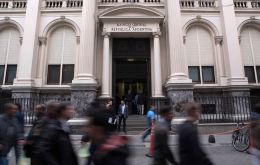
The he Argentine peso climbed more than 4% on Monday trading on the back of a debt sale by the central bank aimed at mopping up excess liquidity and signs that the International Monetary Fund (IMF) is solidly behind the administration of president Mauricio Macri.
-
Tuesday, September 25th 2018 - 21:35 UTC
Who is Guido Sandleris, Argentina's Central Bank president after the surprise resignation of Caputo

The resignation of Luis Caputo to the Presidency of the Central Bank of Argentina (BCRA), which has been reflected with surprise by the international media, occurs amid the trip of the Argentine President, Mauricio Macri, to New York to attend the Assembly General of the UN and with the mission of restoring the confidence of the international market in the Argentine economy. His predecessor, Guido Sandleris, receives a Central Bank when it is about to close an agreement with the International Monetary Fund (IMF).
-
Friday, August 31st 2018 - 09:04 UTC
Chile reduces air boarding taxes by 20%, effective September first
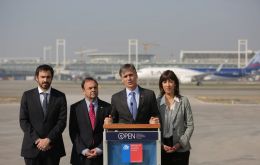
Chilean Minister of Finance Jose Ramon Valente, via its official Twitter account, announced a “20% reduction in the boarding taxes, which will reduce air fares” in the country, both for international and domestic flights. He added “traveling overseas no longer is a privilege for the well off”.
-
Wednesday, July 4th 2018 - 08:13 UTC
Argentina reveals financial needs; stock market and the Peso rebound
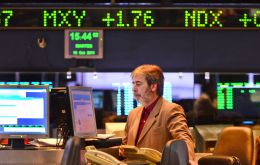
Argentina will need to raise a net US$ 8 billion in the domestic debt market in 2019 to meet financing needs that include a US$ 7.4 billion primary deficit and US$ 25 billion in debt principal and interest payments, according to a Treasury Ministry document.
